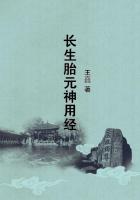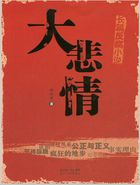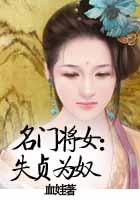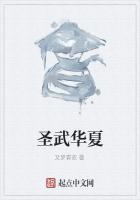Had he been, on the other hand, an unfeeling and unblushing dunce, he would have gone on writing scores of bad tragedies in defiance of censure and derision. But he had too much sense to risk a second defeat, yet too little sense to bear his first defeat like a man. The fatal delusion that he was a great dramatist, had taken firm possession of his mind. His failure he attributed to every cause except the true one. He complained of the ill-will of Garrick, who appears to have done for the play everything that ability and zeal could do, and who, from selfish motives, would, of course, have been well pleased if Virginia had been as successful as the Beggar's Opera. Nay, Crisp complained of the languor of the friends whose partiality had given him three benefit nights to which he had no claim. He complained of the injustice of the spectators, when, in truth, he ought to have been grateful for their unexampled patience. He lost his temper and spirits, and became a cynic and a hater of mankind. From London he retired to Hampton, and from Hampton to a solitary and long deserted mansion, built on a Common in one of the wildest tracts of Surrey. No road, not even a sheep-walk, connected his lonely dwelling with the abodes of men. The place of his retreat was strictly concealed from his old associates. In the spring he sometimes emerged, and was seen at exhibitions and concerts in London. But he soon disappeared, and hid himself with no society but his books, in his dreary hermitage. He survived his failure about thirty years. A new generation sprang up around him. No memory of his bad verses remained among men. His very name was forgotten. How completely the world had lost sight of him, will appear from a single circumstance. We looked for him in a copious Dictionary of Dramatic Authors published while he was still alive, and we found only that Mr. Henry Crisp, of the Custom House, had written a play called Virginia, acted in 1754. To the last, however, the unhappy man continued to brood over the injustice of the manager and the pit, and tried to convince himself and others that he had missed the highest literary honours, only because he had omitted some fine passages in compliance with Garrick's judgment. Alas for human nature, that the wounds of vanity should smart and bleed so much longer than the wounds of affection! Few people, we believe, whose nearest friends and relations died in 1754, had any acute feeling of the loss in 1782. Dear sisters, and favourite daughters, and brides snatched away before the honeymoon was passed, had been forgotten, or were remembered only with a tranquil regret. But Samuel Crisp was still mourning for his tragedy, like Rachel weeping for her children, and would not be comforted. "Never," such was his language twenty-eight years after his disaster, "never give up or alter a tittle unless it perfectly coincides with your own inward feelings. I can say this to my sorrow and my cost. But mum!" Soon after these words were written, his life, a life which might have been eminently useful and happy, ended in the same gloom in which, during more than a quarter of a century, it had been passed. We have thought it worth while to rescue from oblivion this curious fragment of literary history. It seems to us at once ludicrous, melancholy, and full of instruction.
Crisp was an old and very intimate friend of the Burneys. To them alone was confided the name of the desolate old hall in which he hid himself like a wild beast in a den. For them were reserved such remains of his humanity as had survived the failure of his play. Frances Burney he regarded as his daughter. He called her his Fannikin; and she in return called him her dear Daddy. In truth, he seems to have done much more than her real parents for the development of her intellect; for though he was a bad poet, he was a scholar, a thinker, and an excellent counsellor. He was particularly fond of the concerts in Poland Street. They had, indeed, been commenced at his suggestion, and when he visited London he constantly attended them. But when he grew old, and when gout, brought on partly by mental irritation, confined him to his retreat, he was desirous of having a glimpse of that gay and brilliant world from which he was exiled, and he pressed Fannikin to send him full accounts of her father's evening parties. A few of her letters to him have been published; and it is impossible to read them without discerning in them all the powers which afterwards produced Evelina and Cecilia, the quickness in catching every odd peculiarity of character and manner, the skill in grouping, the humour, often richly comic, sometimes even farcical.
Fanny's propensity to novel-writing had for a time been kept down. It now rose up stronger than ever. The heroes and heroines of the tales which had perished in the flames, were still present to the eye of her mind. One favourite story, in particular, haunted her imagination. It was about a certain Caroline Evelyn, a beautiful damsel who made an unfortunate love-match, and died, leaving an infant daughter. Frances began to image to herself the various scenes, tragic and comic, through which the poor motherless girl, highly connected on one side, meanly connected on the other, might have to pass. A crowd of unreal beings, good and bad, grave and ludicrous, surrounded the pretty, timid, young orphan; a coarse sea captain; an ugly insolent fop, blazing in a superb court dress; another fop, as ugly and as insolent, but lodged on Snow Hill, and tricked out in second-hand finery for the Hampstead ball; an old woman, all wrinkles and rouge, flirting her fan with the air of a miss of seventeen, and screaming in a dialect made up of vulgar French and vulgar English; a poet lean and ragged, with a broad Scotch accent. By degrees these shadows acquired stronger and stronger consistence; the impulse which urged Frances to write became irresistible; and the result was the History of Evelina.















